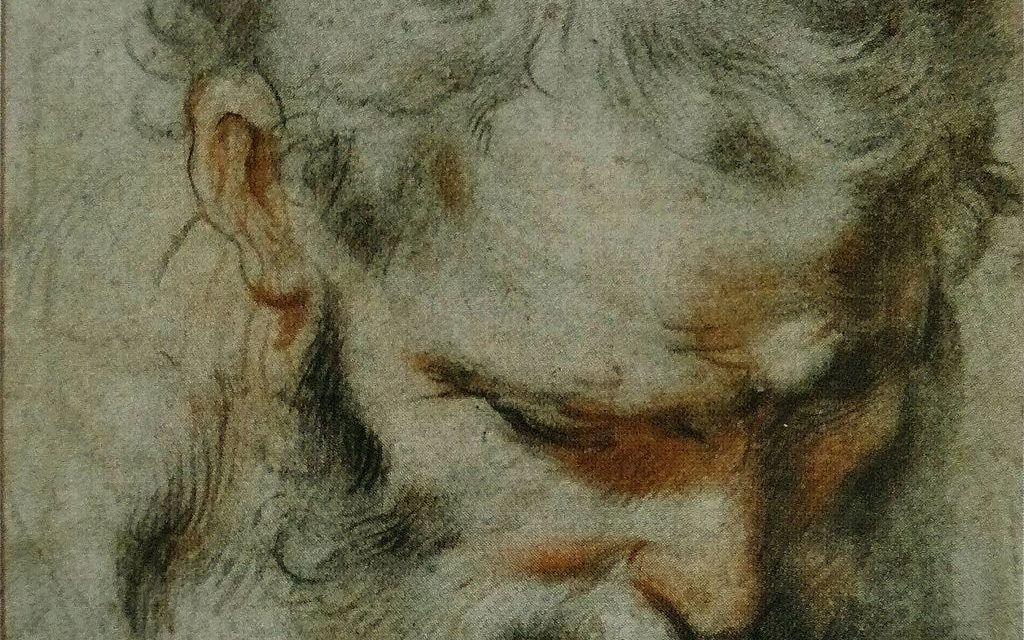2 Sm 7:4-5a, 12-14a, 16
Psalm 89:2-3, 4-5, 27 and 29
Rom 4:13, 16-18, 22
Mt 1:16, 18-21, 24a
Today’s readings emphasize St. Joseph’s lineage that connects him to King David (2 Samuel, Psalm) and indeed to Abraham and all of his descendants. Both Abraham and David had made covenants with God: God establishes that Abraham will be the father of many nations (e.g. Genesis 17:5) and that David will have a royal throne that exists forever.
What we must therefore note is that when Joseph refuses to reject his betrothal with Mary, as we see in today’s Gospel, and raises Jesus as his own son, he thereby confers not only a kind of adoption between himself and this newborn, divine and human, baby; he confers a covenantal history on Jesus.
Let us take a moment to emphasize this. Adoption inculcates a person into whole family (and ideally that family’s extended kinship and friendship bonds). In Leo XIII’s encyclical on St.Joseph, Quamquam Pluries, he notes:
Joseph became the guardian, the administrator, and the legal defender of the divine house whose chief he was. And during the whole course of his life he fulfilled those charges and those duties. He set himself to protect with a mighty love and a daily solicitude his spouse and the Divine Infant; regularly by his work he earned what was necessary for the one and the other for nourishment and clothing; he guarded from death the Child threatened by a monarch’s jealousy, and found for Him a refuge; in the miseries of the journey and in the bitternesses of exile he was ever the companion, the assistance, and the upholder of the Virgin and of Jesus.
(Paragraph 3)
Yet scripture goes further with Joseph. Jesus becomes clearly connected in scripture with the whole of salvation history (not that God needed to do this – but then, that’s the great mystery of Jesus as fully human and fully divine that we are made aware of Jesus’ particular human relationships with his human parents). By extension, Joseph takes on the care all of us in the Church as well.
Jesus Christ is, in a manner, the first-born of Christians, who by the adoption and Redemption are his brothers. And for such reasons the Blessed Patriarch looks upon the multitude of Christians who make up the Church as confided specially to his trust – this limitless family spread over the earth, over which, because he is the spouse of Mary and the Father of Jesus Christ he holds, as it were, a paternal authority.
(Paragraph 3)
What, then, might this suggest for our moral life together?
St. Joseph is very definitely connected to adoptions – and I would say by extension, foster families. Discerning fostering and adoption should be in our sights, though with very careful attention to the multiple concerns involved (See: Gilbert Meilaender’s book, and John Swinton and Brian Brock’s collected essays, for two possibilities of extended reading.)
As we make those kinds of discernments, I think it is important to consider the role that the illusion of choice (especially the extent and range of the kinds of choices we believe we can make) plays in contemporary culture. Adoption sometimes gets named as making a choice to welcome a child that is seen as “inferior” to having a biological child – this kind of thinking is not Gospel thinking and certainly is not part of the witness St. Joseph offers.
More than that, we must note that much of our lives do not consist, in fact, in our freely-made choices to determine our own destinies. Rather, our choices consist in our attempts, as Meilaender puts it, “to be faithful to the commitments already built into your life.” (p 44 in the book link above).
St. Joseph’s witness is exactly to demonstrate that kind of faithfulness to already existing commitments that he yet didn’t look for, choose as though his life’s choices were displayed on a grocery shelf. His faithfulness to Mary, to Jesus, and to the Church as a whole takes courage to see new possibilities emerging because of the limits placed on his life. As Pope Francis notes, in his Apostolic Exhortation commenting on the 150th anniversary of Pope Leo XIII’s letter that “If the first stage of all true interior healing is to accept our personal history and embrace even the things in life that we did not choose, we must now add another important element: creative courage.”
So the Solemnity of St. Joseph affords an opportunity for us to consider the places where we, too, might need to live the courage of faithfulness to already existing commitments.
To whom might we extend our hospitality – especially to those who have no home, few or no friends or family? Who – even if they have a family – needs to hear a word of hope from us, as we seek to emulate this great saint?





